26. The glorious
bird with head on fire, rising with the Sun in day 200
(July 19), could perhaps have corresponded to the Wood Pigeon,
to the
Dove of Noah, the Columba constellation as represented
by its leading star Phakt - flying on her way down to Argo Navis:
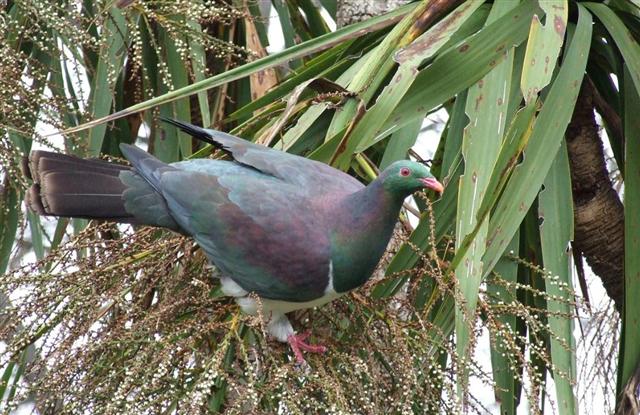
 |
 |
 |
 |
 |
|
Ca5-12 |
Ca5-13 |
Ca5-14 |
Ca5-15 |
Ca5-16 (121) |
|
te
maitaki |
te
henua |
kua haga te mea ke |
manu puoko i tona
ahi |
kua heu te huki |
|
January 15
NOVEMBER 12 |
16
13 |
17
14 |
18
15 |
19 (384)
16 (320) |
|
ALTAIR (*300) |
|
|
|
|
|
July 16
MAY 13 |
17
14 |
18
15 (135) |
19 (200)
16 |
20
17 |
| |
*118 (= 4 * 29˝) |
|
|
NAOS (*121) |
...
Now
Maui
had
already
performed
some
of
his
magic
for
them
on
the
night
when
they
first
set
eyes
on
him,
in
the
meeting
house.
On
that
occasion,
in
front
of
all
his
relatives,
he
had
transformed
himself
into
all
kinds
of
birds
that
live
in
the
forest.
None
of
the
shapes
he
assumed
had
pleased
them
particularly
then,
but
now
he
turned
himself
into
a
kereru,
or
wood
pigeon,
and
with
this
they
were
delighted.
|
Kere To moor, to
make fast. Kerekere, black, dark, blue,
obscure, gloom; niho kerekere, blackened
teeth. Hakakerekere, to blacken. P Pau.:
kerekere, black, dark, somber. Mgv.:
kerekere, blue, dark blue almost black, the
color of the deep ocean, black, somber,
darkness. Mq.: kerekere, keékeé,
black, somber, livid; ere, blue, azure.
Ta.: ereere, black. Churchill. |
| ELE, v.
Haw., be dark, black; adj. dark-coloured,
black, blue, dark-red, brown; ele-ele,
id. Tah., ere-ere, dark, black, blue.
Rarot., kerekere, id. Marqu., kekee,
id.; kee-voo, darkness, gloom.
The application of this word to
colour is doubtless derivative from the Polynes.
Haw. kele, mud, mire (quod vide),
Tong. kčle-kere, earth, soil, dirt, Sam.
'ele and 'ele-ele, red earth, dirt,
rust; elea, Tong., kelea, rusty,
dirty; probably all akin to ala, ara,
in ala-ea, earth, clay ... Jav., iran,
black. N. Celebes (Kema), hirun, id.
In the following Greek words
the first constituent proclaims their affinity
to the Polynesian ere, ele: -
ερεβος, darkness of the grave, the dark
passage from earth to Hades; ερεβεννος,
dark, gloomy; ερεμνος, sync. fr. previous
word, black, swarthy; ερεφω, to cover;
ορφνη, darkness of night; ορφνος,
dark, dusty; οροφη, roof of a house.
Sanskr., aruņa,
tawny, dark, red; s.
the dawn, the sun; aruņita,
made red.
Benfey
refers the Sanskrit word to
arus,
a wound. Lidell and Scott refer the Greek words
to ερεφω,
to cover. They are plausible; but are they the
true roots of stems, in view of the Polynesian
ele,
ere?
Dr. J. Pickering, in his Greek Lexicon, derives
ερεβος
'from ερα
(the earth) or ερεφω
(to cover)'. The former seems to me the better
reference.
ELE˛,
prefix.
Haw., an intensitive added to many words,
imparting a meaning of 'very much, greatly';
ele-u,
alert, quick;
ele-ma-kule,
old, aged, helpless;
ele-mio,
tapering to a point;
ele-ku,
easily broken, very brittle;
ele-hei,
too short. Tah.,
ere-huru,
encumbered, too much of a thing.
A.
Pictet ... says, apropos of the derivation of
the word Erin:
'L'irlandais er
comme adjectif magnus, nobilis, paraît ętre
identique ŕ l'er
intensitif de l'irlandais et du cymrique,
considéré comme une particule inséparable, et
qui serait ainsi proprement un adjectif. Il est
ŕ remarquer en confirmation, que le zend
airya
= sanskr. arya
avec l'acception de bon, juste, est également
devny ér
dans les composés du Pârsi, comme
ér-maneshu,
bon esprit, er-tan,
bon corps (Spiegel, Avesta, i. 6). De lŕ ŕ un
sens intensitif, transition était facile.' Why
not widen the philological horizon by admittning
the Polynesian ere,
ele,
to consideration as well as the Irish, Welsh, or
Parsi? And why may not the O. Norse
ar,
early, first; aerir,
messengers; the Sax. er,
before, in time, go up to the same root as those
others? (Fornander) |
|
Ru
A chill, to shiver, to shudder,
to quake; manava ru, groan. Ruru,
fever, chill, to shiver, to shake, to tremble,
to quiver, to vibrate, commotion, to apprehend,
moved, to agitate, to strike the water, to
print; manava ruru, alarm; rima ruru,
to shake hands. P Pau.: ruru, to shake,
to tremble. Mgv.: ru, to shiver with
cold, to shake with fever, to tremble. Mq.: ú,
to tremble, to quiver. Ta.: ruru, to
tremble. Churchill. Mgv.: eager, in haste,
impatient. Ta.: ru, impatience, haste.
Churchill.
Ruru, to tremble, an
earthquake. Sa.: lūlū,
lue,
to shake. To.: luelue,
to roll; lulu,
to shake. Fu.: lulū,
to tremble, to shake, to agitate. Niuē:
luelue, to
shake; lūlū,
to shake, to be shaken. Nuguria: ruhe,
motion of the hands in dancing; luhe
henua, an
earthquake. Uvea, Ha.: lu,
lulu,
lululu,
to shake, to tremble, to flap. Fotuna:
no-ruruia,
to shake. Ma.: ru,
ruru,
to shake, an earthquake. Ta., Rarotonga,
Rapanui, Pau.: ruru,
to shake, to tremble. Mgv.: ru,
to tremble; ruru,
to shake. Mq.: uu,
to shake the head in negation; uuuu,
to shake up. Uvea: ue i,
to shake; ueue,
to move. Rapanui: ueue,
to shake. Churchill 2. |
'Heavens!'
they
said.
'You
do
look
handsome.
Much
more
beautiful
than
the
birds
you
showed
us
last
time.'
What
made
him
look
so
splendid
now
was
that
he
was
wearing
the
belt
and
skirt
he
had
stolen
from
his
mother
that
morning.
The
thing
that
looked
so
white
across
the
pigeon's
breast
was
his
mother's
belt.
He
also
had
the
sheen
of
her
skirt,
that
was
made
of
burnished
hair
from
the
tail
of a
dog,
and
it
was
the
fastening
of
her
belt
that
made
the
beautiful
feathers
at
his
throat.
This
is
how
the
wood
pigeon
got
its
handsome
looks
...
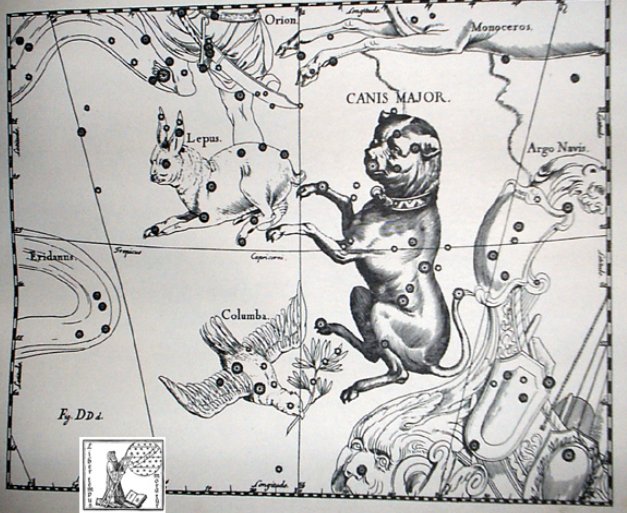
... He came
down, in his noisy pigeon way, and strutted about for a
moment. Then he lifted the rushes. He flopped into the
hole and replaced the clump behind him, and was gone. A
few strokes of his wings took him to that other country,
and soon he saw some people talking to one another on
the grass beneath some trees. They were manapau
trees, a kind that grows in that land and nowhere else.
Maui flew
down to the tops of the trees and, without being noticed
by any of the people, perched on a branch that enabled
him to see them. Almost at once he recognized Taranga,
sitting on the grass beside her husband, a man who by
his dress and demeanor was plainly a chief. 'Aha,' he
cooed to himself, 'there are my father and my mother
just below me.' And soon he knew that he was not
mistaken, for he heard their names when other members of
the party spoke to them. He flopped down through the
leaves and perched on the branch of a
puriri
tree thad had some berries on it. He turned his head
this way and that, and tilted it on its side. Then he
pecked off one of the berries and gently dropped it, and
it hit his father's forehead.
'Was that a
bird, that dropped that berry?' one of the party asked.
But the father said No, it was only a berry that fell by
chance.
So Maui
picked some more berries, and this time he threw them
down quite hard, and they hit both the father and the
mother and actually hurt them a little. Then everyone
got up and walked round peering into the branches of the
tree. The pigeon cooed, and everyone saw it. Some went
away and gathered stones, and all of them, chiefs and
common people alike, began throwing stones up into the
branches. They threw for a long time without hitting the
pigeon once, but then a stone that was thrown by Maui's
father struck him. It was Maui, of course, who decided
that it should, for unless he had wished it, no stone
could have struck him. It caught his left leg, and down
he fell, fluttering through the branches to the ground.
But when they ran to pick the bird up, it had turned
into the shape of a young man
...
The
mana-pau trees which
were growing only down in the
Underworld could refer to
such timbers who had been
felled - turned into
horizontal in
order to build Argo Navis.
They were no longer potent,
they had lost their mana,
they had gone to the
Underworld.
|
Pau
1. To run out (food, water):
ekó pau te kai, te vai, is said when there
is an abundance of food or water, and there is
no fear of running out. Puna pau, a small
natural well near the quarry where the 'hats' (pukao)
were made; it was so called because only a
little water could be drawn from it every day
and it ran dry very soon. 2. Va'e pau,
clubfoot. Paupau: Curved. Vanaga.
1. Hakapau, to pierce
(cf. takapau, to thrust into). Pau.:
pau, a cut, a wound, bruised, black and
blue. 2. Resin. Mq.: epau, resin. Ta.:
tepau, gum, pitch, resin. (Paupau)
Hakapaupau, grimace, ironry, to grin. 3.
Paura (powder), gunpowder. 4. Pau.:
paupau, breathless. Ta.: paupau, id.
5. Ta.: pau, consumed, expended. Sa.:
pau, to come to an end. Ma.: pau,
finished. 6. Ta.: pau, to wet one
another. Mq.: pau, to moisten. Churchill.
Paua
or pāua
is the Māori name given to three species
of large edible sea snails, marine gastropod
molluscs which belong to the family
Haliotidae (genus Haliotis), known in
the USA as abalone, and in the UK as ormer
shells ... Wikipedia |
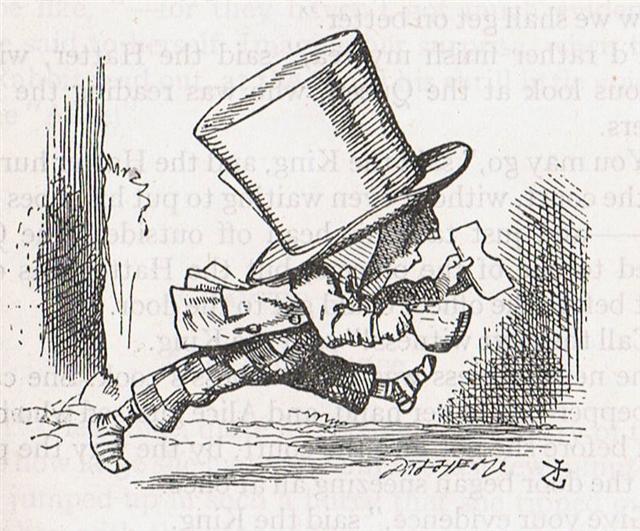
The name of the tree-felling captain and pilot,
Hiro, probably alluded to the planet Mercury - who
behaved whimsically (unstable like a liquid) and who was hard to catch sight of
because he never stood high in the sky.
... Mercury
was used in the process of curing pelts for hats, making
it impossible for hatters to avoid inhaling the mercury
fumes given off during the hat making process; hatters
and mill workers thus often suffered mercury poisoning,
causing neurological damage, including confused speech
and distorted vision ...
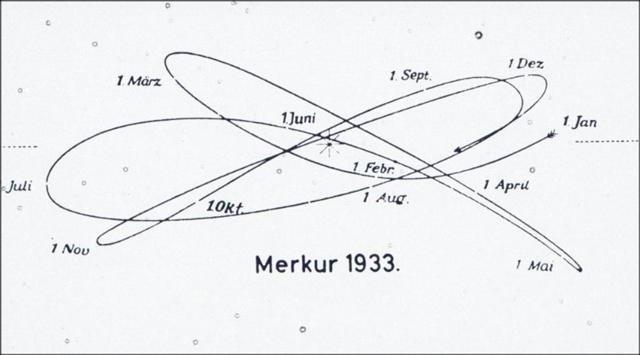
... The
first day in the lunar calendar was (O)Hiro,
which also was the name of Mercury. When Father Light
(Sun) was gone, then the Full Moon would take a step
forward and steal his position
...
|
Names for Mercury: |
|
Hawaiian Islands |
Society Islands |
Tuamotus |
New Zealand |
Pukapuka |
|
Ukali
or Ukali-alii 'Following-the-chief'
(i.e. the Sun)
Kawela
'Radiant' |
Ta'ero
or Ta'ero-arii 'Royal-inebriate'
(referring to the eccentric and undignified
behavior of the planet as it zigzags from
one side of the Sun to the other) |
Fatu-ngarue
'Weave-to-and-fro'
Fatu-nga-rue
'Lord of the Earthquake' |
Whiro
'Steals-off-and-hides'; also the universal
name for the 'dark of the Moon' or the first
day of the lunar month; also the deity of
sneak thieves and rascals. |
Te Mata-pili-loa-ki-te-la
'Star-very-close-to-the-Sun' |
|
Hiro
1. A deity invoked when praying
for rain (meaning uncertain). 2. To twine tree
fibres (hauhau, mahute) into strings or
ropes.
Ohirohiro, waterspout
(more exactly pú ohirohiro), a column of
water which rises spinning on itself.
Vanaga.
To spin, to twist. P Mgv.:
hiro, iro, to make a cord or line in
the native manner by twisting on the thigh. Mq.:
fió, hió, to spin, to twist, to
twine. Ta.: hiro, to twist. This differs
essentially from the in-and-out movement
involved in hiri 2, for here the movement
is that of rolling on the axis of length, the
result is that of spinning. Starting with the
coir fiber, the first operation is to roll (hiro)
by the palm of the hand upon the thigh, which
lies coveniently exposed in the crosslegged
sedentary posture, two or three threads into a
cord; next to plait (hiri) three or other
odd number of such cords into sennit.
Hirohiro, to mix, to blend, to dissolve, to
infuse, to inject, to season, to streak with
several colors; hirohiro ei paatai, to
salt. Hirohiroa, to mingle; hirohiroa
ei vai, diluted with water. Churchill.
Ta.: Hiro, to
exaggerate. Ha.: hilohilo, to lengthen a
speech by mentioning little circumstances, to
make nice oratorial language. Churchill.
Whiro
'Steals-off-and-hides'; also [in addition to the
name of Mercury] the universal name for the
'dark of the Moon' or the first day of the lunar
month; also the deity of sneak thieves and
rascals.
Makemson. |
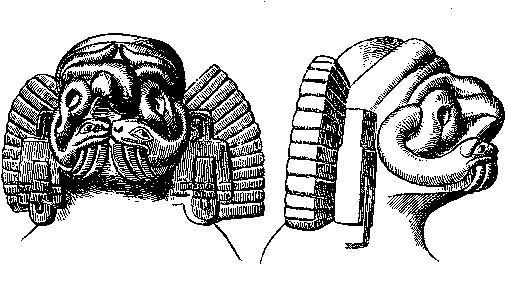
In high summer the path of the Sun
levelled out, turned around from climbing to rushing down. Mars ruled in the
beginning and Mercury the opposite place. Their
father was Jupiter (Jus Piter, Father Light, the
Tree) and he separated them.

|






